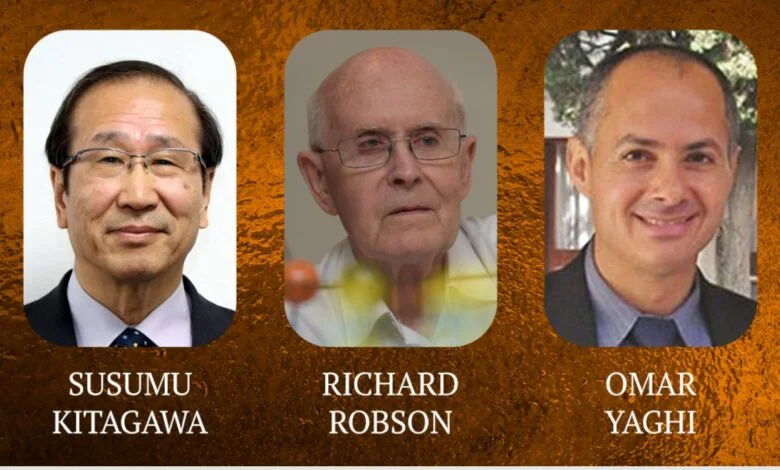
STOCKHOLM, Oct 8 – The 2025 Nobel Prize in Chemistry has been awarded to three pioneers who engineered a new class of crystalline materials with unprecedented capacity to capture, store, and separate molecules. Their work on Metal-Organic Frameworks, or MOFs, is paving the way for transformative technologies aimed at extracting water from arid air, capturing carbon dioxide, and purifying the environment.
Professors Susumu Kitagawa of Japan, Richard Robson of Australia, and Omar Yaghi of the United States were honored for creating these highly porous, sponge-like structures built from metal ions and organic molecules. The power of MOFs lies in their staggering internal surface area; the Nobel Committee illustrated that a single sugar-cube-sized piece can have an internal surface area sprawling across a football field, effectively creating molecular-scale factories and storage tanks.
Since the initial breakthrough, the field has exploded. Scientists have now designed tens of thousands of custom MOFs, with pores tailored for specific tasks. These “designer materials” are at the forefront of tackling pressing technological challenges. Practical applications currently in development include atmospheric water harvesting, where MOFs capture water vapor from desert air to create potable water. They are also being engineered for carbon capture to selectively trap CO2 from industrial emissions, and for environmental remediation, where they can filter toxic “forever chemicals” and trace pharmaceuticals from water supplies.
The laureates envision a future where MOF-based technologies are integrated into everyday systems. “My dream is to capture air and separate air… and convert this to useful materials using renewable energy,” Professor Kitagawa told a press conference.
The award also highlights the global and transformative nature of scientific pursuit. Professor Yaghi, a Jordanian-American, shared a powerful personal story of his journey from a childhood in a one-room home in Jordan to the pinnacle of science. “It’s quite a journey and science allows you to do it,” Yaghi said. “Science is the greatest equalising force in the world.”
This year’s prize continues the Nobel Committee’s focus on breakthroughs in molecular engineering, following last year’s award for computational protein design. The recognition of MOFs signals the critical importance of designing functional materials from the ground up, providing a new toolbox for chemists and engineers that is poised to drive technological innovation for decades to come.






More Stories
EPIC FURY: U.S., Israel Strike Iran; Khamenei Reportedly Killed
China Articulates a Global South Vision for Fairer Governance
China Deepens Economic Footprint in Nigeria as Bilateral Trade Nears $22 Billion